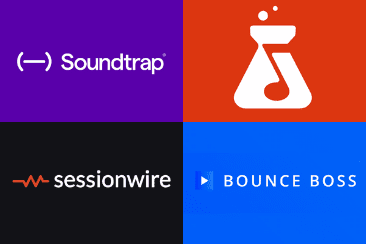The last year of lockdown has been a challenging one in the UK and across the world. But, we heard last week from PM Boris Johnson that “the crocus of hope is poking through the frost”. Translation: lockdown will soon be gradually lifting, but don’t get carried away. For musicians who have been struggling to make do with home studios, virtual collaborations, and online gigs, this is big news. For the music industry in crisis, this means that festivals and large concerts are back on the cards this year. But, what does the timeline look like and what exactly is being prioritised first in the UK roadmap plan?
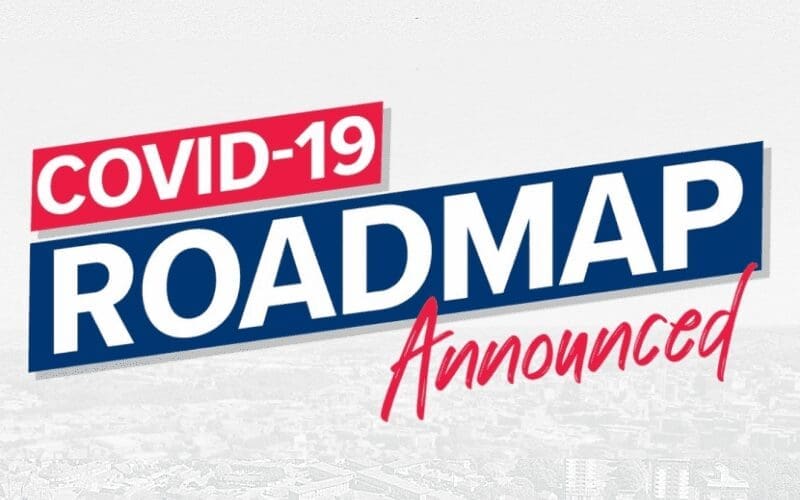
Although we can’t guarantee exactly when the Covid lockdown will end for the music industry, this article will explain the rationale behind government thinking and some of the current dates for social distancing changes that will have a serious impact for musicians. At last some good news!
What Is The Roadmap?

There’s a lot of jargon around Coronavirus and corresponding national health policies. In essence, PM Johnson’s long-awaited roadmap provides a framework for lifting the current restrictions (national lockdown).
The roadmap allows different sectors of the economy to start making plans for reopening and building Covid-safe guidelines into working practices before restrictions are lifted.
Each stage of the roadmap is contingent on four tests being met:
- Continued successful vaccine roll-out (hitting national targets, especially vulnerable groups)
- Evidence vaccines are effectively reducing deaths and pressure on the NHS
- Infection rates don’t rise to a level which would threaten to overwhelm the NHS
- New variants of concern don’t change the government’s risk assessments
At present, all are being satisfied sufficiently to start rolling out stage one.
How Will Lockdown Be Lifted?
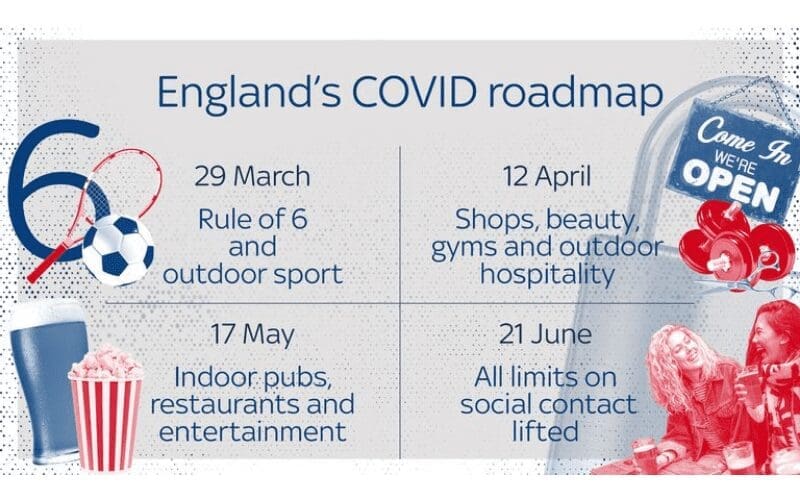
Covid-19 restrictions will be eased over four stages spread across at least four months. We explain more about this below.
Stage 1
8th March
- All colleges and schools will reopen (phased reopening in Scotland and Wales with younger year groups brought back first, Northern Ireland is reviewing all its restrictions on 18th March)
- University return for students on practical courses with a review at Easter for all other university students
- Face coverings and up to four tests a week for school children and all school staff will be a foundation for reopening
- Two people from different households can meet outside recreationally
- One person can visit a care home resident if they have a test beforehand and wear full PPE
Stage 2
12th April
- All shops to open
- Restaurants and pub gardens can reopen with only outdoor seating (incl alcohol)
- Gyms and spas to reopen
- Close contact services to reopen (hairdressers, salons)
- Same households can go on ‘staycations’ in the UK
- Zoos, theme parks, libraries, and outdoor cinemas to reopen
- Drive-in cinemas and drive-in performances will be permitted
- Weddings with 15 people can resume
Stage 3
17th May
- Groups of up to 30 can meet outdoors
- Pubs and restaurants can cater for six people or two households indoors
- Six people or two households can meet privately indoors
- Indoor entertainment can reopen (museums, theatres, and cinemas) 1,000 for large venues or half capacity for smaller venues
- Outdoor performances and events can resume as before, capped at 10,000 people for the largest venues (40,000 capacity)
- Hotels, hostels and B&Bs allowed to reopen
- Indoor group sports/exercises classes allowed to resume
- International holidays may be allowed (no earlier than 17th May)
Stage 4
21st June
- Legal limits on social contact to be removed: weddings, festivals, conferences etc all allowed with no caps on attendees
- Nightclubs allowed to reopen
What Does The Roadmap Mean For Musicians?
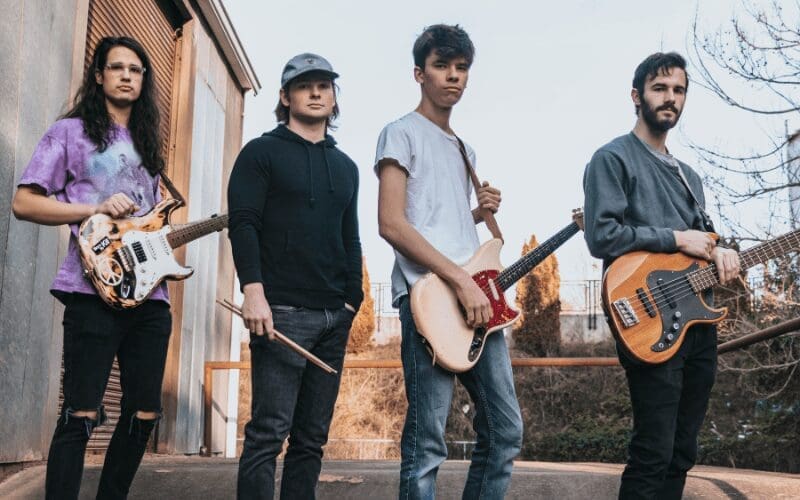
A roadmap is all very well, but some of these guidelines are a little confusing. What do they actually mean for musicians who need to get back to work?
The UK lockdown and tiered restrictions on social distancing hit the creative economy incredibly hard last summer. However, the prospect of no social restrictions by the beginning of summer leaves open potential for a massive rebound, fuelled by pent up demand.
But, when will the lockdown end fully for musicians? Below, your questions are answered.
When Can A Band Come Together And Rehearse Indoors?
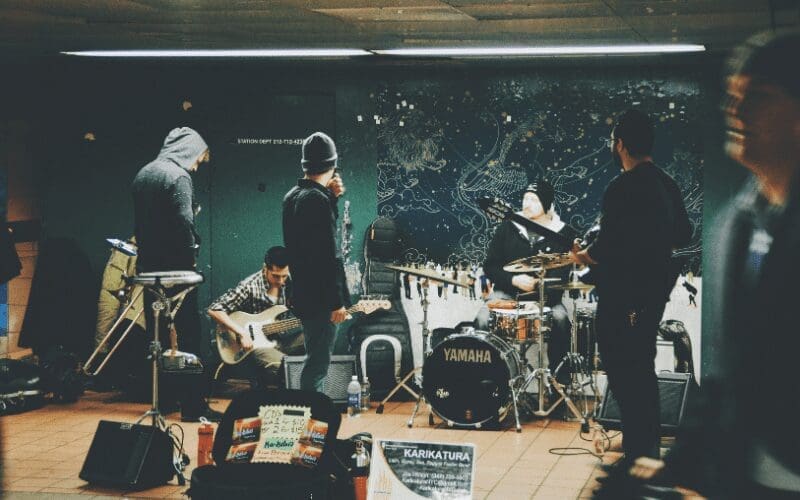
Presumably, the rules for indoor music rehearsals will be similar to indoor sports groups, which means no indoor group rehearsals until 17th May.
At this point, the rule of six will likely still be in place, so don’t expect local symphony orchestra rehearsals to start in May necessarily.
However, if it’s possible for your band to rehearse outside in a park, common, or other permissible communal areas, you may be able to resume in April with a group of up to 30.
When Can You Do A Gig Outside?
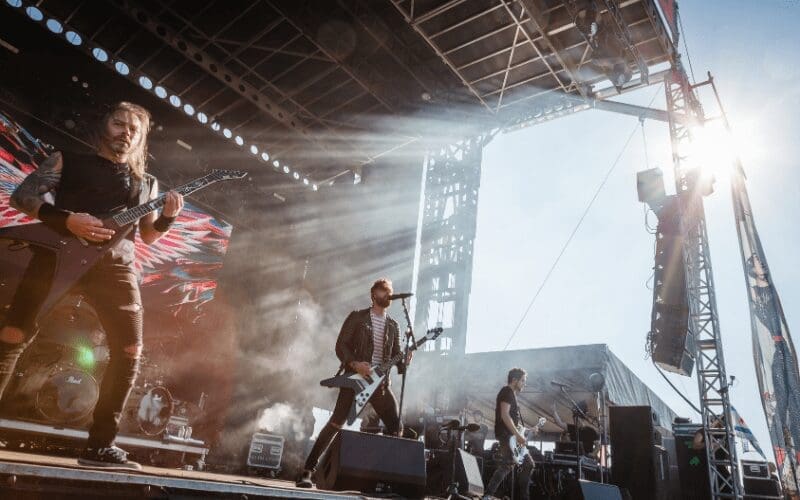
We expect the earliest time for organised outside gigs and drive in- performances will be 12th April.
This is when bars and pubs with outdoor seating/gardens may be hiring DJs or bands, and also when people can meet others outside of their household.
Obviously, busking is allowed during a lockdown, but other forms of illegal busking or formal gigs will likely not be here till mid-Spring.
When Can You Do A Gig Indoors?
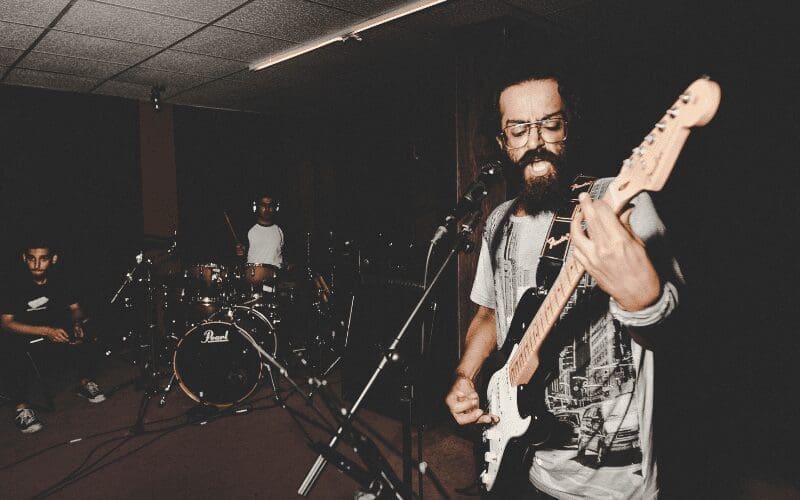
On 17th May, indoor performances can begin again with half capacity, which in large venues is capped at 1,000 people. Expect to start seeing concert halls and performance spaces booking up fast in the coming months.
By 21st June, if all goes well, indoor gigs with no cap on audience numbers can resume.
The lifting of all social restrictions at this point will also mean groups of any size can attend indoor gigs together (rather than the rule of six or two households).
When Can Music Festivals Resume?

On the 17th May, outdoor performances will be allowed. We assume this means that festivals can go ahead with restrictions on numbers at this point.
For a lot of festivals, however, half capacity isn’t viable (especially with the financial impact of last year’s festival season losses).
So, more likely the 21st June will be when festivals will actually start going ahead – providing all goes well and the four tests continue to be met.
At this point, all social distancing rules should be removed, meaning festivals can go ahead much as they did pre-Covid. Though perhaps with increased testing and thorough cleaning of shared facilities.
When Can You Gig Abroad And Tour Again?

International travel for holidays won’t resume until the 17th May at the earliest, however, travel for work purposes is largely permitted.
The real issue is the necessity to isolate for 10 days on return and (if returning from a country with a high infection rate) paying £2000 to isolate in a hotel for two weeks. Depending on your circumstances, this may not be viable.
Equally, in many local EU destinations, restrictions are in place which makes indoor music performances and tours illegal, just like UK Covid restrictions.
Our best bet for international tours to resume again is late summer at the earliest, and probably much later given the pace of vaccine rollout. As well as the potential for more variants to emerge that may encourage the UK to shut its borders.
UK tours, however, could well resume in April with indoor performances resuming.
Roadmap To Recovery: Our Final Thoughts
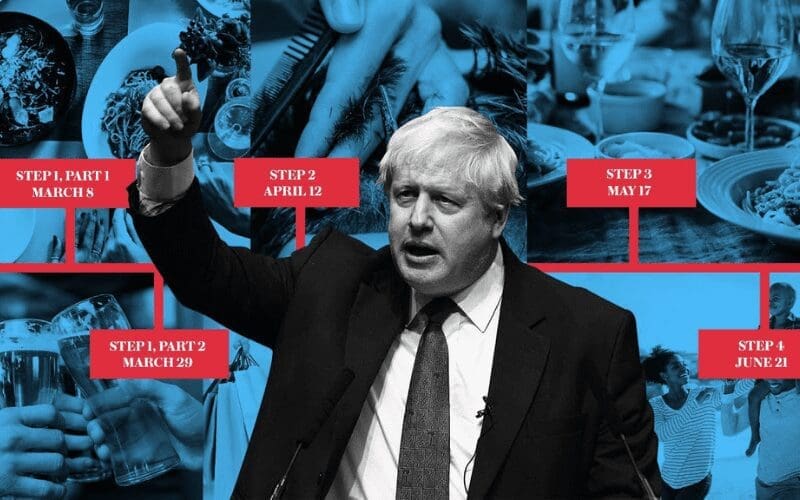
Hopefully, this has clarified how you can start making steps towards preparing for (what we hope!) will be a summer of seriously good music.
The roadmap does not prioritise the music industry, but given how many events aren’t viable without a decent-sized audience, lifting restrictions on gigs earlier while still capping numbers very low wouldn’t be helpful either.
We all want to see the virus circulating less, and the government is optimistic the UK roadmap will help prevent the NHS from being overwhelmed again with more lives lost.
Nonetheless, musicians have been patiently waiting to resume work and receive necessary state support which hasn’t been forthcoming. The return of live music cannot come soon enough.
Be sure to share this article with your fellow musicians, it contains some vital information that they need to know. Also, what’re your plans for the 21st June? We would love to hear all about them in the comment section below!
Are You An Artist?
Мusic Gateway is always looking to help creatives, including promoting your music and improving your streaming presence! Also, check out our Sync opportunities page to get your music in TV and Film! Try it out for free today by signing up or clicking the button below.







